About the Editors
Editor-in-Chief
Sara Goodacre, PhD, University of Nottingham, United Kingdom
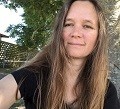 Prof. Goodacre is an evolutionary biologist and geneticist based in the School of Life Sciences at the University of Nottingham. Sara’s group at Nottingham works on the evolutionary biology and genetics of spiders and other invertebrate using molecular genetic techniques. Her work, in collaboration with colleagues in the School of Chemistry includes the production of synthetic biomaterials that are inspired by genomic characterisation of natural proteins such as spider silks, to produce sustainable alternatives for use in medicine and engineering. Her research has received funding through the BBSRC and industrial partners, NERC, BIG Lottery, the Royal Society and the Wellcome Trust.
Prof. Goodacre is an evolutionary biologist and geneticist based in the School of Life Sciences at the University of Nottingham. Sara’s group at Nottingham works on the evolutionary biology and genetics of spiders and other invertebrate using molecular genetic techniques. Her work, in collaboration with colleagues in the School of Chemistry includes the production of synthetic biomaterials that are inspired by genomic characterisation of natural proteins such as spider silks, to produce sustainable alternatives for use in medicine and engineering. Her research has received funding through the BBSRC and industrial partners, NERC, BIG Lottery, the Royal Society and the Wellcome Trust.Co-Editor-in-Chief
Aurora Ruiz-Herrera, PhD, Autonomous University of Barcelona UAB, Spain
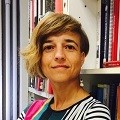
Aurora Ruiz-Herrera is an Associate Professor at the Faculty of Biosciences of Autonomous University of Barcelona (UAB). She did her PhD at the UAB on genome evolution with research stages in the NIH (USA), Italy and Venezuela. She spent five years of postdoctoral training at the University of Stellenbosch (South Africa) studying the uniqueness of the African fauna and the University of Pavia (Italy) gaining experience in genome instability. Then, she moved back to UAB where she leads the Genome Architecture and Evolution Group. She has more than 20 years of experience on the study of the structural, functional, and evolutionary aspects of genome organisation, paying special attention to the germ line. Her current research is focused on the study of genome biology by combining computational and experimental methods, and by studying the genomes of different vertebrate species.
See Aurora Ruiz-Herrera's website here
Reviews Editor
Frank Hailer, PhD, Cardiff University, Wales, United Kingdom
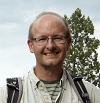
Frank Hailer is an evolutionary geneticist with a research profile at the interface of molecular ecology, conservation biology and genomics. He obtained his PhD in Evolutionary Genetics at Uppsala University (Sweden), subsequently conducted postdoctoral research at the Smithsonian’s National Zoo (USA) and the Senckenberg Biodiversity and Climate Research Centre BiK-F (Germany). He now holds a permanent position at Cardiff University (UK).
He is particularly interested in the mechanisms of adaptation, speciation and introgression, and how different parts of the genome portray different aspects of evolutionary history. His research traces the origin and fate of genetic variation within individuals to their populations and species, and continues deeper into phylogenetic time scales. Hailer’s research also investigates various key processes in ecology, such as causes & consequences of movement and dispersal, and mechanisms of loss or maintenance of genetic diversity. In his research, he has studied a wide range of taxa, including bears, eagles, tropical seabirds, canids, turtles, fruit flies, lynxes, and elephants, spanning arctic to tropical habitats.
See Frank Hailer’s website here
Editors
Christine Baes, MSc, PhD, University of Bern, Switzerland, University of Guelph, Canada
 Christine Baes is a Professor and Canada Research Chair in the Department of Animal Biosciences at the University of Guelph in Canada, and a scientist and lecturer in the Vetsuisse Faculty, University of Bern in Switzerland. She completed her doctoral studies at the Christian-Albrechts-University at Kiel and the Leibniz Institute for Farm Animal Biology in Germany. As a quantitative geneticist with a strong interest in animal behaviour, she is interested in unraveling genomic mechanisms that underlie health, welfare, productivity, and efficiency of domesticated animals, as well as developing sustainable breeding programs. Her research involves implementation of genetic, genomic, statistical, and computational tools to identify and further characterize different types of genetic variants and apply them to breeding programs, as well as understanding their effects on phenotypes. She is also interested in understanding the genomic architecture of relatedness and inbreeding in livestock.
Christine Baes is a Professor and Canada Research Chair in the Department of Animal Biosciences at the University of Guelph in Canada, and a scientist and lecturer in the Vetsuisse Faculty, University of Bern in Switzerland. She completed her doctoral studies at the Christian-Albrechts-University at Kiel and the Leibniz Institute for Farm Animal Biology in Germany. As a quantitative geneticist with a strong interest in animal behaviour, she is interested in unraveling genomic mechanisms that underlie health, welfare, productivity, and efficiency of domesticated animals, as well as developing sustainable breeding programs. Her research involves implementation of genetic, genomic, statistical, and computational tools to identify and further characterize different types of genetic variants and apply them to breeding programs, as well as understanding their effects on phenotypes. She is also interested in understanding the genomic architecture of relatedness and inbreeding in livestock.
See Christine Baes' website here
Sam Banks, PhD, Charles Darwin University, Australia
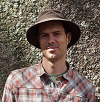 Sam Banks is a Professor in the Research Institute for the Environment and Livelihoods at Charles Darwin University (CDU), Darwin, Australia. He did his PhD at Monash University and, although a terrestrial mammologist by preference, ‘went marine’ as a postdoc at Macquarie University before moving to the Australian National University and then CDU in 2018. A core research interest is the intersection of disturbance ecology and population genetics, specifically how fire regimes influence population dynamics and genetic diversity, as well as the broader application of genetic tools to mammal conservation in northern Australia.
Sam Banks is a Professor in the Research Institute for the Environment and Livelihoods at Charles Darwin University (CDU), Darwin, Australia. He did his PhD at Monash University and, although a terrestrial mammologist by preference, ‘went marine’ as a postdoc at Macquarie University before moving to the Australian National University and then CDU in 2018. A core research interest is the intersection of disturbance ecology and population genetics, specifically how fire regimes influence population dynamics and genetic diversity, as well as the broader application of genetic tools to mammal conservation in northern Australia.
See Sam Banks’ website here
Rowan Barrett, PhD, McGill University, Canada
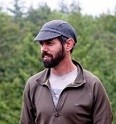 Rowan Barrett is an Assistant Professor and Canada Research Chair in the Redpath Museum and Biology Department at McGill University, Montreal, Canada. He completed his Ph.D. at the University of British Columbia in 2010 and received postdoctoral training at Harvard University before taking up his current position. Dr. Barrett's work is focused on understanding the genetic basis of adaptation to changing environments. His research bridges theoretical and empirical approaches in population genetics, evolutionary ecology, and molecular biology to ask questions about the reciprocal interactions between ecological and evolutionary processes. He has pursued this research program with a variety of key study systems, including stickleback fish, deer mice, anolis lizards, and microbes.
Rowan Barrett is an Assistant Professor and Canada Research Chair in the Redpath Museum and Biology Department at McGill University, Montreal, Canada. He completed his Ph.D. at the University of British Columbia in 2010 and received postdoctoral training at Harvard University before taking up his current position. Dr. Barrett's work is focused on understanding the genetic basis of adaptation to changing environments. His research bridges theoretical and empirical approaches in population genetics, evolutionary ecology, and molecular biology to ask questions about the reciprocal interactions between ecological and evolutionary processes. He has pursued this research program with a variety of key study systems, including stickleback fish, deer mice, anolis lizards, and microbes.
See Rowan Barrett's website here
Alison Bentley, PhD, Australian National University, Australia
 Alison Bentley is an applied crop scientist with 15 years of research experience in genetics and plant breeding spanning fundamental understanding of plant processes through to development of field- and farm-level decision support tools. She has a BSc and PhD in Agricultural Science from The University of Sydney, Australia and has primarily worked on wheat as a major staple food crop. Throughout her career she has worked in a range of research environments in Australia, the UK and Mexico and has had close interactions with academia, the private sector, and the wider agricultural community. Alison was Director of the Global Wheat Program at the International Maize and Wheat Improvement Center (CIMMYT) in Mexico and Director of Genetics and Breeding at NIAB in Cambridge, UK. Alison is a group leader in the Research School of Biology and Deputy Director of the Agrifood Innovation Institute at the Australian National University.
Alison Bentley is an applied crop scientist with 15 years of research experience in genetics and plant breeding spanning fundamental understanding of plant processes through to development of field- and farm-level decision support tools. She has a BSc and PhD in Agricultural Science from The University of Sydney, Australia and has primarily worked on wheat as a major staple food crop. Throughout her career she has worked in a range of research environments in Australia, the UK and Mexico and has had close interactions with academia, the private sector, and the wider agricultural community. Alison was Director of the Global Wheat Program at the International Maize and Wheat Improvement Center (CIMMYT) in Mexico and Director of Genetics and Breeding at NIAB in Cambridge, UK. Alison is a group leader in the Research School of Biology and Deputy Director of the Agrifood Innovation Institute at the Australian National University.
Giorgio Bertorelle, PhD, University of Ferrara, Italy
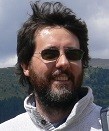 Giorgio Bertorelle is a population geneticist at the University of Ferrara, Italy. He obtained a PhD at the University of Padova in 1996. His main interest is the reconstruction of evolutionary processes using genetic variation data in different species, including the statistical aspects and the understanding of the impact on genomes of environmental changes related to human activities.
Giorgio Bertorelle is a population geneticist at the University of Ferrara, Italy. He obtained a PhD at the University of Padova in 1996. His main interest is the reconstruction of evolutionary processes using genetic variation data in different species, including the statistical aspects and the understanding of the impact on genomes of environmental changes related to human activities.
See Giorgio Bertorelle's website here
Armando Caballero Rua, PhD, University of Vigo, Spain
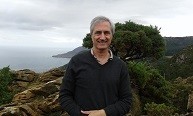 Armando Caballero is a population and quantitative geneticist interested in conservation genetics and evolution. He obtained a PhD at Universidad Complutense de Madrid in 1990 and worked as a postdoctoral research fellow at Edinburgh University from 1990 to 1996. He is currently Professor of Genetics at Universidad de Vigo. His work has focused on effective population size theory, genetic diversity and inbreeding, nature of quantitative genetic variation and genetic management of conserved populations.
Armando Caballero is a population and quantitative geneticist interested in conservation genetics and evolution. He obtained a PhD at Universidad Complutense de Madrid in 1990 and worked as a postdoctoral research fellow at Edinburgh University from 1990 to 1996. He is currently Professor of Genetics at Universidad de Vigo. His work has focused on effective population size theory, genetic diversity and inbreeding, nature of quantitative genetic variation and genetic management of conserved populations.
See Armando Caballero Rua's website here
Lounès Chikhi, PhD, Gulbenkian Institute of Science, Portugal, University of Toulouse, France
 Lounès Chikhi is a population geneticist working at the CNRS (French National Centre for Scientific Research) in Toulouse, France. He is also the Principal Investigator of the Population and Conservation Genetics group, at the Instituto Gulbenkian de Ciência, in Oeiras, Portugal. He defended his PhD in 1995 in Paris VII (Universitè Pierre et Marie Curie) for a work carried out between Montpellier, Abidjan and Sète. After a post-doc in Padua, Italy and several post-docs in the UK (Institute of Zoology, in London, Queen Mary and Westfield College, University College London, and University of Cardiff) he joined the EDB (Evolution & Diversité Biologique) lab in Toulouse, France in 2002. He is interested in understanding how genetic data can be used to reconstruct the recent history of populations.
Lounès Chikhi is a population geneticist working at the CNRS (French National Centre for Scientific Research) in Toulouse, France. He is also the Principal Investigator of the Population and Conservation Genetics group, at the Instituto Gulbenkian de Ciência, in Oeiras, Portugal. He defended his PhD in 1995 in Paris VII (Universitè Pierre et Marie Curie) for a work carried out between Montpellier, Abidjan and Sète. After a post-doc in Padua, Italy and several post-docs in the UK (Institute of Zoology, in London, Queen Mary and Westfield College, University College London, and University of Cardiff) he joined the EDB (Evolution & Diversité Biologique) lab in Toulouse, France in 2002. He is interested in understanding how genetic data can be used to reconstruct the recent history of populations.
See Lounès Chikhi's website here
Josselin Clo, PhD, French National Centre for Scientific Research CNRS, France
 Josselin Clo is a quantitative geneticist working at the CNRS (French National Centre for Scientific Research) in Lille, France. He defended his PhD in 2020 in Montpellier. After a post doc in Prague, Czech Republic, he joined the EEP (Evolution Ecology Paleontology) lab in Lille in 2023. He is interested in understanding the evolution and consequences of mating systems (mainly self-fertilization) and polyploidy on the adaptive potential of populations, based on both theoretical and empirical approaches.
Josselin Clo is a quantitative geneticist working at the CNRS (French National Centre for Scientific Research) in Lille, France. He defended his PhD in 2020 in Montpellier. After a post doc in Prague, Czech Republic, he joined the EEP (Evolution Ecology Paleontology) lab in Lille in 2023. He is interested in understanding the evolution and consequences of mating systems (mainly self-fertilization) and polyploidy on the adaptive potential of populations, based on both theoretical and empirical approaches.
See Josselin Clo’s website here
 Lindsey is a Lecturer in Genetics in the School of Biosciences at the University of Birmingham. Her work focuses on understanding the genetic basis of complex traits in crops and the application of this knowledge for improving crop breeding. Lindsey’s research group uses a combination of statistical genetics and multi-omics approaches to dissect agriculturally important traits (e.g. abiotic stress resistance) into their underlying genetic components in a variety of organisms, but particularly the autotetraploid crop potato. She is particularly interested in genomic adaptations to the autopolyploid state, including meiotic chromosome behaviour, and how to address the resulting complexities in genetic analyses, including Quantitative Trait Locus mapping and association studies. Lindsey is passionate about teaching all things genetics and passing on her love for the subject to the next generation of geneticists.
Lindsey is a Lecturer in Genetics in the School of Biosciences at the University of Birmingham. Her work focuses on understanding the genetic basis of complex traits in crops and the application of this knowledge for improving crop breeding. Lindsey’s research group uses a combination of statistical genetics and multi-omics approaches to dissect agriculturally important traits (e.g. abiotic stress resistance) into their underlying genetic components in a variety of organisms, but particularly the autotetraploid crop potato. She is particularly interested in genomic adaptations to the autopolyploid state, including meiotic chromosome behaviour, and how to address the resulting complexities in genetic analyses, including Quantitative Trait Locus mapping and association studies. Lindsey is passionate about teaching all things genetics and passing on her love for the subject to the next generation of geneticists.
See Lindsey Compton’s website here
Ben Evans, PhD, McMaster University, Canada
 Ben Evans is a Professor in the Biology Department at McMaster University, Ontario, Canada. He completed a Ph.D. at Columbia University and was a postdoctoral research scientist at the University of Texas at Austin and Columbia University, USA. Dr. Evans is interested in how new sex chromosomes evolve, and how demography, molecular evolution, recombination, and natural selection differently affect sex chromosomes and autosomes. He is also interested in the evolution of polyploid genomes, how redundant genetic elements influence genome evolution, and the population genomics of speciation. Most of his work focuses on terrestrial vertebrates, especially frogs and monkeys.
Ben Evans is a Professor in the Biology Department at McMaster University, Ontario, Canada. He completed a Ph.D. at Columbia University and was a postdoctoral research scientist at the University of Texas at Austin and Columbia University, USA. Dr. Evans is interested in how new sex chromosomes evolve, and how demography, molecular evolution, recombination, and natural selection differently affect sex chromosomes and autosomes. He is also interested in the evolution of polyploid genomes, how redundant genetic elements influence genome evolution, and the population genomics of speciation. Most of his work focuses on terrestrial vertebrates, especially frogs and monkeys.
See Ben Evans' website here
Rui Miguel Macieira de Faria, PhD, University of Porto, Portugal
 Rui Faria is an evolutionary biologist primarily interested in the mechanisms of adaptation and speciation. His research is focused on the role of chromosomal rearrangements and natural selection in speciation and how they shape genome-wide patterns of divergence during the evolution of reproductive isolation. During his career he worked with a wide variety of taxa, including anadromous and marine fishes, primates, rodents, birds, and molluscs. Currently his research is focused on marine gastropods of the genus Littorina. After completing his PhD at the University of Porto (Portugal) he held postdoc positions at the Institute of Evolutionary Biology-Universitat Pompeu Fabra in Barcelona (Spain) and the Research Centre in Biodiversity and Genetic Resources (CIBIO) in Portugal. Rui was also a Marie Curie fellow at the Department of Animal and Plant Sciences at the University of Sheffield (UK), and in the past five years has been an associate researcher at CIBIO-BIOPOLIS (Portugal) where he is leading a research group on seascape genomics and speciation (SEAGEN).
Rui Faria is an evolutionary biologist primarily interested in the mechanisms of adaptation and speciation. His research is focused on the role of chromosomal rearrangements and natural selection in speciation and how they shape genome-wide patterns of divergence during the evolution of reproductive isolation. During his career he worked with a wide variety of taxa, including anadromous and marine fishes, primates, rodents, birds, and molluscs. Currently his research is focused on marine gastropods of the genus Littorina. After completing his PhD at the University of Porto (Portugal) he held postdoc positions at the Institute of Evolutionary Biology-Universitat Pompeu Fabra in Barcelona (Spain) and the Research Centre in Biodiversity and Genetic Resources (CIBIO) in Portugal. Rui was also a Marie Curie fellow at the Department of Animal and Plant Sciences at the University of Sheffield (UK), and in the past five years has been an associate researcher at CIBIO-BIOPOLIS (Portugal) where he is leading a research group on seascape genomics and speciation (SEAGEN).
See Rui Faria's website here
Dario Grattapaglia, PhD, Brazilian Corporation of Agricultural Research EMBRAPA, Brazil
 Dario Grattapaglia is a plant geneticist at EMBRAPA (Brazilian Federal Corporation of Agricultural Research) and professor in the graduate program of Genomic Sciences at the Catholic University of Brasília. Forest engineer by training he obtained his Ph.D. in Genetics with a co-major in Forestry from North Carolina State University. His main interest involves the application of genomic data in forest trees to investigate the basis of complex trait variation, understand the structure and dynamics of natural populations and incorporate genomics in advanced tree breeding and conservation strategies.
Dario Grattapaglia is a plant geneticist at EMBRAPA (Brazilian Federal Corporation of Agricultural Research) and professor in the graduate program of Genomic Sciences at the Catholic University of Brasília. Forest engineer by training he obtained his Ph.D. in Genetics with a co-major in Forestry from North Carolina State University. His main interest involves the application of genomic data in forest trees to investigate the basis of complex trait variation, understand the structure and dynamics of natural populations and incorporate genomics in advanced tree breeding and conservation strategies.
See Dario Grattapaglia's website here
Olivier Hardy, PhD, Université Libre de Bruxelles, Belgium
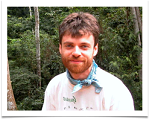 Olivier Hardy has specific interest in plant population genetics, phylogeography and community ecology. He did his PhD on the evolution of a polyploid complex at the Université Libre de Bruxelles, Belgium, and a postdoc on gene dispersal in an endangered plant at the University of Montpellier II, France. He also developed computer programs simulating processes or treating population genetics or community data. His current research focus on African rain forest plants, including species delimitation, comparative phylogeography, seed and pollen dispersal, and community phylogenetics.
Olivier Hardy has specific interest in plant population genetics, phylogeography and community ecology. He did his PhD on the evolution of a polyploid complex at the Université Libre de Bruxelles, Belgium, and a postdoc on gene dispersal in an endangered plant at the University of Montpellier II, France. He also developed computer programs simulating processes or treating population genetics or community data. His current research focus on African rain forest plants, including species delimitation, comparative phylogeography, seed and pollen dispersal, and community phylogenetics.
See Olivier Hardy's website here
Gerald Heckel, PhD, University of Bern, Switzerland

Gerald Heckel is an evolutionary biologist with relatively diverse research interests in speciation, invasion processes, behavior genetics and host-pathogen co-evolution. He received his PhD from the University of Erlangen-Nürnberg in Germany for behavioral and genetic research on the mating system of neotropical bats. After moving to Switzerland and a short postdoc, he started his own research projects at the University of Bern on the population genetics and molecular ecology of several vertebrate and invertebrate systems - at present mostly wild rodents and their more or less faithful parasites. Research approaches draw on ecological and behavioral work together with genetic, genomic and transcriptomic analyses to understand the establishment and maintenance of evolutionary divergence and functional biodiversity.
See Gerald Heckel's website here
Pär K. Ingvarsson, PhD, Swedish University of Agricultural Sciences, Sweden
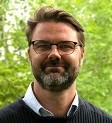 Pär Ingvarsson is professor of Plant Genomics and Plant Breeding and his main interests are understanding the genetic basis of adaptive traits, mainly in woody perennial plants such as aspens and spruces. He did his PhD at Umeå University and spent time as a postdoctoral researcher at University of British Columbia and University of Virginia before returning to a faculty position at Umeå University. He recently moved to Uppsala and the Swedish University of Agricultural Sciences. His current research is focused on combining population, quantitative and comparative genomics to understand the evolution of adaptive traits.
Pär Ingvarsson is professor of Plant Genomics and Plant Breeding and his main interests are understanding the genetic basis of adaptive traits, mainly in woody perennial plants such as aspens and spruces. He did his PhD at Umeå University and spent time as a postdoctoral researcher at University of British Columbia and University of Virginia before returning to a faculty position at Umeå University. He recently moved to Uppsala and the Swedish University of Agricultural Sciences. His current research is focused on combining population, quantitative and comparative genomics to understand the evolution of adaptive traits.
See Pär Ingvarsson's website here
Louise J. Johnson, PhD, University of Reading, United Kingdom
 Louise Johnson is an evolutionary geneticist whose research combines bioinformatics, theory and experimental work. She did her PhD at Imperial College on yeast mating system evolution, followed by postdocs at Nottingham and the University of Virginia on transposable elements. She came to Reading on an RCUK Fellowship in 2006 and is now an Associate Professor of Evolutionary Genetics, working on many aspects of the evolution of genetic systems: the evolution of the genetic code, of gene regulatory networks, mating systems and intragenomic conflicts, and how these affect the structure and function of genomes. Much of her work involves experimental evolution, using both bacteria and cancer cell lines.
Louise Johnson is an evolutionary geneticist whose research combines bioinformatics, theory and experimental work. She did her PhD at Imperial College on yeast mating system evolution, followed by postdocs at Nottingham and the University of Virginia on transposable elements. She came to Reading on an RCUK Fellowship in 2006 and is now an Associate Professor of Evolutionary Genetics, working on many aspects of the evolution of genetic systems: the evolution of the genetic code, of gene regulatory networks, mating systems and intragenomic conflicts, and how these affect the structure and function of genomes. Much of her work involves experimental evolution, using both bacteria and cancer cell lines.
See Louise Johnson's website here
Sara Knott, PhD, University of Edinburgh, United Kingdom
 Sara Knott is a quantitative geneticist. She obtained her PhD from The University of Edinburgh, based at the AFRC Institute of Animal Physiology and Genetics Research. Since then she has stayed at the University of Edinburgh and is now in the Institute of Evolutionary Biology. Her interests are in the development and application of statistical approaches to understand the genetic architecture of complex traits.
Sara Knott is a quantitative geneticist. She obtained her PhD from The University of Edinburgh, based at the AFRC Institute of Animal Physiology and Genetics Research. Since then she has stayed at the University of Edinburgh and is now in the Institute of Evolutionary Biology. Her interests are in the development and application of statistical approaches to understand the genetic architecture of complex traits.
See Sara Knott's website here
Joram Mwacharo, PhD, SRUC, United Kingdom, and ICARDA, Ethiopia
 Joram Mwacharo is a Professor at SRUC, Scotland and a Senior Scientist at the International Centre for Agricultural Research in the Dry Areas (ICARDA), Ethiopia. He obtained his PhD in animal genomics and breeding at Tokyo University of Agriculture (Japan) and conducted postdoctoral research at the University of Nottingham (UK). He is interested in elucidating the genetic/genomic control of biological (simple and complex) traits in animals. He studies the impact of functional genomics on biological performance, using a combination of “omics” and “informatics” approaches with tropical livestock as the model species. He is also interested in how patterns of genomic variation relate to phylogeography, evolutionary history and dynamics of tropical livestock, and unravelling the interaction between pathogens/parasites and their mammalian hosts at the level of their genome function.
Joram Mwacharo is a Professor at SRUC, Scotland and a Senior Scientist at the International Centre for Agricultural Research in the Dry Areas (ICARDA), Ethiopia. He obtained his PhD in animal genomics and breeding at Tokyo University of Agriculture (Japan) and conducted postdoctoral research at the University of Nottingham (UK). He is interested in elucidating the genetic/genomic control of biological (simple and complex) traits in animals. He studies the impact of functional genomics on biological performance, using a combination of “omics” and “informatics” approaches with tropical livestock as the model species. He is also interested in how patterns of genomic variation relate to phylogeography, evolutionary history and dynamics of tropical livestock, and unravelling the interaction between pathogens/parasites and their mammalian hosts at the level of their genome function.
See Joram Mwacharo's website here
Bastiaan Star, PhD, University of Oslo, Norway
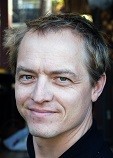 Bastiaan Star is an evolutionary biologist and associated professor at the University of Oslo, Norway. He is interested in historical ecology and conservation genomics and uses a range of genomic tools (including ancient DNA) to investigate how genetic variation, population structure and population size have changed over time during the onset of human exploitation and ecological globalization. He has a particular interest in the marine environment, performing research into a broad range of marine organisms across the globe. He enjoys collaborating with archaeologists, zooarchaeologists, historians and ecologists to study modern and ancient specimens up to thousands of years old.
Bastiaan Star is an evolutionary biologist and associated professor at the University of Oslo, Norway. He is interested in historical ecology and conservation genomics and uses a range of genomic tools (including ancient DNA) to investigate how genetic variation, population structure and population size have changed over time during the onset of human exploitation and ecological globalization. He has a particular interest in the marine environment, performing research into a broad range of marine organisms across the globe. He enjoys collaborating with archaeologists, zooarchaeologists, historians and ecologists to study modern and ancient specimens up to thousands of years old.
See Bastiaan Star's website here
Marc Stift, PhD, University of Konstanz, Germany

See Marc Stift's website here
Paul Sunnucks, PhD, Monash University, Australia
 Paul Sunnucks is a Professor in the School of Biological Sciences at Monash University, Melbourne, Australia. He runs the Persistence and Adaptation Research Team, which is mainly concerned with evolutionary adaptation and population processes in wildlife, and the incorporation of evolutionary processes into conservation biology. Two major current research themes are: (1) ecophysiological adaptation and lineage divergence driven by mitonuclear interactions (evolutionary interactions between mitochondrial DNA genes and their nuclear partners), and (2) experimental genetic augmentation of wildlife species of conservation concern. His research informs his strong interactions with wildlife management agencies, and teaching in ecology and conservation.
Paul Sunnucks is a Professor in the School of Biological Sciences at Monash University, Melbourne, Australia. He runs the Persistence and Adaptation Research Team, which is mainly concerned with evolutionary adaptation and population processes in wildlife, and the incorporation of evolutionary processes into conservation biology. Two major current research themes are: (1) ecophysiological adaptation and lineage divergence driven by mitonuclear interactions (evolutionary interactions between mitochondrial DNA genes and their nuclear partners), and (2) experimental genetic augmentation of wildlife species of conservation concern. His research informs his strong interactions with wildlife management agencies, and teaching in ecology and conservation.
See Paul Sunnucks' website here
Janna Willoughby, PhD, Auburn University, United States of America
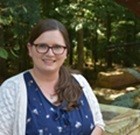 Janna Willoughby is an evolutionary geneticist with a focus on conservation and disease ecology. She earned her PhD in wildlife genetics from Purdue University's Department of Forestry and Natural Resources. Following her PhD, she conducted postdoctoral research in the Department of Biological Sciences, investigating adaptation in wild populations. In 2019, she joined Auburn University's College of Forestry, Wildlife, and Environment as an assistant professor. Her research at Auburn centers on understanding the evolution of populations on the brink of extinction and the impact of diseases on these populations, using bioinformatics and modeling approaches.
Janna Willoughby is an evolutionary geneticist with a focus on conservation and disease ecology. She earned her PhD in wildlife genetics from Purdue University's Department of Forestry and Natural Resources. Following her PhD, she conducted postdoctoral research in the Department of Biological Sciences, investigating adaptation in wild populations. In 2019, she joined Auburn University's College of Forestry, Wildlife, and Environment as an assistant professor. Her research at Auburn centers on understanding the evolution of populations on the brink of extinction and the impact of diseases on these populations, using bioinformatics and modeling approaches.
See Janna Willoughby’s website here
Xiangjiang Zhan, PhD, Chinese Academy of Sciences, China
 Xiangjiang Zhan is a population genomicist who has worked with mammals but more recently with birds. He did his PhD in the Institute of Zoology, Chinese Academy of Sciences. He did his postdoc at Cardiff University, UK. Six years later, he got a professorship in Chinese Academy of Sciences and has established a lab in Beijing. His current research focuses on population genomics, evolutionary genetics and ecology of animals, especially those living in extreme environments.
Xiangjiang Zhan is a population genomicist who has worked with mammals but more recently with birds. He did his PhD in the Institute of Zoology, Chinese Academy of Sciences. He did his postdoc at Cardiff University, UK. Six years later, he got a professorship in Chinese Academy of Sciences and has established a lab in Beijing. His current research focuses on population genomics, evolutionary genetics and ecology of animals, especially those living in extreme environments.
See Xiangjiang Zhan's website here
Yuan-Ming Zhang, PhD, Huazhong Agricultural University, China
 Yuan-Ming Zhang is a Professor who focuses on quantitative genetics research and specialized in methodologies for quantitative trait locus (QTL) mapping and genome-wide association studies (GWAS). He received his Ph.D. from Nanjing Agricultural University on mixed major genes plus polygenes inheritance. He did his postdoctoral research at the University of California, Riverside, where he developed his interest in GWAS and QTL mapping. He worked in Nanjing Agricultural University from 1999 and moved to Huazhong Agricultural University in 2014, where he established the Statistical Genomics Laboratories. His current research interests include QTL mapping for quantitative traits, GWAS, comparative genomics, genetic mating design, and linkage group construction of distorted markers.
Yuan-Ming Zhang is a Professor who focuses on quantitative genetics research and specialized in methodologies for quantitative trait locus (QTL) mapping and genome-wide association studies (GWAS). He received his Ph.D. from Nanjing Agricultural University on mixed major genes plus polygenes inheritance. He did his postdoctoral research at the University of California, Riverside, where he developed his interest in GWAS and QTL mapping. He worked in Nanjing Agricultural University from 1999 and moved to Huazhong Agricultural University in 2014, where he established the Statistical Genomics Laboratories. His current research interests include QTL mapping for quantitative traits, GWAS, comparative genomics, genetic mating design, and linkage group construction of distorted markers.
See Yuan-Ming Zhang's website here
